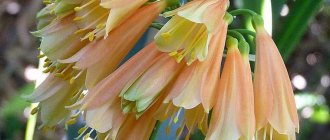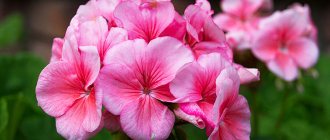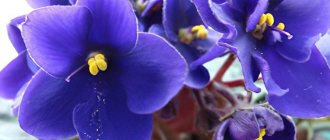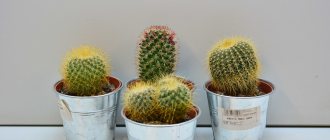» Signs » Signs and superstitions about Coleus
0
1324
Article rating
Coleus signs and superstitions associated with the acquisition of this indoor plant go back far into the past. It was believed that keeping such a flower in the house would lead to ruin because the middle name of the plant is poor man's croton. But the happy owners of such a beautiful exotic flower cannot say anything bad about keeping the plant in the room. Everyone must figure out for themselves whether to believe in beliefs and superstitions or not. If you want to get a Croton, then you should immediately find out how many signs and superstitions there are about Coleus.
Signs and superstitions about Coleus
Coleus: signs and superstitions
The most famous signs about the indoor coleus flower include:
- If the plant suddenly begins to wither, it means that misfortune awaits the household.
- If the leaves turn yellow , it means that there is negative energy in the house. It is quite possible that damage or the evil eye was sent to one of the residents.
- Dryness of the plant , despite high-quality care, is an indicator of imminent illness.
- It is believed that nettle is a plant that helps its owner improve financial well-being.
- If you put it on your desk, your employer will definitely notice you. You may be expecting a salary increase or promotion up the career ladder in the near future.
- Due to the unusual shape of the leaves, which resemble flames, our ancestors believed that the flower increased the likelihood of fires in the house. However, no evidence of this was found.
- Some people believe that coleus is a poor man's plant. This sign appeared back when people were divided into social strata. Croton (a flower similar to coleus) could only be afforded by the rich, but the coleus itself was purchased by poor people.
- There is a sign according to which the plant scares men away from home. Therefore, it should not be purchased by single women. In ancient times, parents would place the plant in their daughter's room to prevent her from tying the knot at an early age. When the time approached for marriage, the flower was removed.
Signs for women
Where to put according to Feng Shui
Feng Shui experts advise placing the plant in a home where people often experience depression, financial difficulties, are lazy or cannot concentrate. Esotericists are sure that coleus brings joy and attracts happiness.
According to Feng Shui, nettles are placed in the north-eastern zone of the room. It is better in the room of a student or schoolchild, as the flower enhances mental abilities, increases concentration and performance. According to signs, the plant is appropriate in the office, where important decisions are often made.
If troubles often occur in the house, then coleus can be placed in a green pot in the hallway, closer to the door. As soon as the situation improves, you can move the plant back to its usual place.
According to signs, coleus absorbs bad energy and cleanses space, improving the quality of life of the residents of the house.
Buying and flowering coleus: signs
There are signs associated with the time of purchase and flowering of coleus:
- If you buy a flower in the summer , you will have to endure a poor winter.
- The plant bloomed in winter - problems in the financial sector are expected.
- Flowers appeared in December - a frosty March is expected.
- If the coleus blooms in the spring, the owner of the house will be lucky in love . Very soon she will meet her betrothed.
- Summer flowering promises good luck in all areas.
- Flowers appeared in May - expect good news.
- If the coleus blooms for the second time in a year, the girl living in the house will soon get married.
- Flowers appeared on the bushes on the eve of Christmas - you should not expect profits or good luck in business in the new year.
- If the plant has not bloomed for a long time, and suddenly you notice buds on it, the birth of a child is expected.
When purchasing, install the flower correctly in the house
- The ancient Chinese teaching of Feng Shui makes it clear how best to decorate a home. Flowers have a huge impact on the aura of homes and people.
- According to the teachings of Feng Shui, coleus is the element of Fire . It symbolizes passion, willpower, activity and power. If you place a flower in your home, it will fill your home with the energy of happiness, wealth and good luck.
- As a result, a person begins to change his lifestyle for the better and becomes positive. This allows him to improve his personal life, normalize the emotional component, and advance his career. He begins to cope with life's difficulties more easily.
Is there any benefit or harm from having a flower in the house?
Properties useful for the home:
- beautiful and memorable interior;
- plant phytoncides purify the air, expelling negative energy;
- the smell of mint emanating from it brings clarity of thinking, improves physical activity and memory;
- getting rid of diseases;
- magnetism for luck, finances, well-being;
- serves as an indicator of the ill will of people coming into the house - its leaves immediately lose their inherent turgor.
Harmful qualities are the baseless superstitions described above.
Decide for yourself whether to believe in these signs or not, because if you look closely, there are many contradictions in them.
Why do you dream about coleus?
If you dreamed of a coleus flower, you can interpret such dreams in different ways:
- For a young unmarried girl, this is a sign that she will soon meet love. If she dreamed of a blooming coleus, she would soon get married.
- If a man , success in business awaits him.
- The plant stands in a room where there are many people, you will be invited to a significant celebration.
- a pet next to the flower pot - you are expected to meet a friend whom you have not seen for a long time.
- The plant is withering - expect trouble or conflict in the family.
- If you dreamed of a dried plant , get ready for an upcoming illness.
Omens by time of year
There are a number of beliefs, the interpretation of which is carried out taking into account the time of year:
- buy a plant in summer - winter will be poor;
- flowering is observed in winter - significant financial losses are expected;
- nettle bloomed at the end of autumn - March will be cold and snowy;
- fades in winter - a difficult period for the family is expected in summer;
- the condition of the plant worsens in the spring - quarrels and conflicts will begin in the family, even a complete break in relations between spouses is possible.
Is it possible to keep coleus at home?
- This exotic plant is quite in demand among housewives, although its effect on the aura of the house and the person has not been fully studied. Most people are convinced that the flower will bring them good luck and success.
- If you're unsure whether you should grow coleus at home, read on for more information. After weighing all the pros and cons, you can make a decision.
Benefits of Coleus
- There is an opinion that indoor plants are a source of positive energy. They cleanse the house of negativity and make the atmosphere more lively.
- Thanks to its bright flowers, coleus transforms the design of a room and improves your mood.
- The flower contains quite a lot of essential oils that eliminate negativity and restore energy balance. This allows you to achieve harmony in the family, which is why spouses will have less conflict.
- If you place the plant on your desktop, its pleasant aroma will improve brain function , which will make work go better.
Both positive and negative influences
Coleus damage
- There are no toxic substances in the leaves and stems of coleus . Therefore, the plant does not worsen human biological rhythms . It is dangerous only for those who believe in omens and superstitions.
- Suspicious people tend to constantly monitor the development of nettles. Then they begin to connect this with events that happen in life. If even one leaf begins to dry out, a person begins to panic and prepare for trouble. When you constantly think about negativity, you violate your aura . As a result, you attract illnesses and problems.
- It is believed that the “cemetery flower,” another name for coleus, takes away the vitality of young children. If you are planning to have a child, or are preparing to become parents, it is better to hold off on buying a plant.
- If nettle has been growing in your home for a long time and does not bring any negative effects, you can leave it in place. It will not cause any harm to the baby.
General information about Coleus
This is a very spectacular ornamental plant that has bright red-brown leaves framed by a green border. Caring for coleus is not difficult : the plant prefers sunny places, needs moderate watering and simply loves pinching (trimming).
The birthplace of this flower is Asia. It was from there that several centuries ago coleus seeds came to domestic countries. It should be noted that the flower also has a second name - nettle, which is more popular among the people.
Find out what awaits you today - Horoscope for today for all zodiac signs
Due to numerous requests from subscribers, we have prepared an accurate horoscope application for mobile phones. Forecasts will arrive for your zodiac sign every morning - it's impossible to miss! Download for free: Daily Horoscope 2020 (available on Android)
The flower has a large number of positive properties (which we will talk about later), but there are also negative ones - for example, vindictiveness. The plant does not forgive its owners for indifference and requires that it be given enough attention.
Where to put coleus?
- Finding the perfect place to plant your coleus is important. It feels best on southern and southeastern window sills. Thanks to this, nettle enlivens the space and stimulates energy flows in the corners of the room.
- You can put a flower in the bedroom . This way you can get rid of obsessive thoughts and improve the quality of your sleep. The strong energy that the plant emits allows you to make your intimate life more active.
- If you want to protect your home from negativity, enemies and ill-wishers , place nettles in the hallway. As soon as a person with negative thoughts enters the house, the leaves of the plant will begin to wither.
Despite all the signs and superstitions, coleus is a positive flower that will not harm a person. It all depends on your thoughts. If you believe in negativity, it will happen. Set your thoughts on a positive wave. Then only pleasant moments will happen in your life. Try to think that the flower brings only good luck and success.
Other signs about flowers on the site:
- Amazon Lily "Eucharis"
- Hamedorea
- Epipremnum
- Pedilanthus
- Christmas star
Other signs based on the state of the flower
There are other reasons why coleus loses its decorative effect.
Why do the leaves turn yellow?
Esotericists claim that the yellowing of coleus leaves indicates the accumulation of a large amount of negativity, which the flower cannot cope with on its own.
According to popular beliefs, this behavior of the plant is typical for cases when damage has been caused to the inhabitants of the apartment or to the home. Although the reason for this may be much more prosaic.
The point may be that the decorative nettle simply does not have enough light. and besides, in the warm season, coleus needs regular and abundant watering. Failure to comply with these requirements leads to yellowing and dropping of leaves.
Why does it bloom in winter?
Coleus typically blooms in spring and summer. If buds appear on it in winter, then, according to popular belief, the owners should be wary of financial collapse.
This interpretation of the unusual behavior of coleus comes from the times when people’s lives depended on the harvest. If the plant felt the approaching heat in winter, then this indicated a thaw and absence of snow. In the summer this turned into a bad harvest.
Why is he dying?
Popular superstitions say that if a plant withers before your eyes, you should take care of the health of your loved ones. Drying leaves and stems indicate that there is a person with a serious illness in the house.
Although the laws of human society do not apply in the world of flowers, every indoor plant requires care and attention. Compliance with the rules of agricultural technology will help protect coleus from withering and death.
If we put aside negative prejudices, coleus can be a wonderful decoration for any residential or office space. A healthy, well-groomed plant with bright foliage will not only please the eye, but will also fill the surrounding space with positive energy.
Interesting facts about the flower
- If you have coleus growing on your window, no moth will be scary for you. This plant promotes an atmosphere of cleanliness and does not tolerate living together with any parasites.
- Coleus leaves have small tubercles that act as lenses. It is due to the reflected light from these natural lenses that the leaves have such a bright color. If you would like to test this fact, place a coleus leaf in a glass filled with hot water. The tubercles will burst and the leaves will turn green, like all ordinary plants.
- You can change the color of coleus leaves using water to which food coloring has been added. After you water the plant with such water, it will be very noticeable how it rises along the transparent stem.
You definitely won’t regret it if you decide to have this amazing plant at home. It will fill your home and you with positive energy, attract good luck in business and improve your mood.
https://potustoronnee.com/primeta/koleus.htmlhttps://tainy.net/63495-koleus-primety.htmlhttps://ezoterica.club/primetyi/koleus-tsvetok.htmlhttps://tayniymir.com/primetyi- i-sueveriya/koleus-primetyi-i-sueveriya.html
vote
Article rating
Where he likes to grow
It grows best in soil that is a mixture of rich loam and sand. Its native habitat is mountain slopes in India, Thailand and Nepal. This means that the plant thrives in well-drained soil. Coleus forskohlii is a perennial plant that loves warm climates. It can take root in mid-latitudes, but the plant's lifespan will be shortened.
Categorically does not like the cold. Frost kills the stems and leaves, but the roots survive. If the plant grows in a cold climate, the soil should be mulched in late autumn to provide additional protection. For planting in cold climates, cuttings can be used for rooting. It is best to plant the plant in special containers, which will be transferred to a warm place for the winter.
Conditions for plant life
A heat-loving flower, it prefers a sunny climate, but in the heat of the day it is better to provide shade. It tolerates lack of moisture comfortably, but for better growth and lushness, it is preferable to provide abundant watering and maintain sufficient soil moisture. If the plant is planted not in open ground, but in a container, then moisture will be retained there much better.
For a more attractive appearance and for better growth, excess leaves need to be removed from the stem. This will allow the flower to become more branched. To limit growth, you need to prune the coleus. This can be done throughout this growing season.
What is
Coleus is a member of the Lamiaceae family, better known as the mint family. Plants in this group have square-shaped stems and are generally very aromatic due to their high essential oil content. A perennial herbaceous plant with an aroma similar to that of camphor.
It has green leaves, unlike its brightly colored decorative counterpart. Coleus flowers can be colored in shades from blue to lavender. Coleus reaches a height of 70 cm. The width varies somewhat depending on how often the leaves of the plant are thinned.
Folk signs
Coleus in the house signs:
- Signs of an imminent illness in the owners are wilting leaves, drying of the flower. First aid: check whether the plant is being properly cared for. If the cause of the poor condition is not a lack of watering or an invasion of aphids, it is recommended to urgently clean the premises and take a closer look at your own health and the health of your loved ones;
- Coleus in the office means good luck in business. Croton brings success and glory to the owner to whom it belongs. Cleanses the surrounding space from negativity, neutralizes other people's evil energy. The essential oil secreted by the leaves is a powerful biostimulant that triggers creative activity.
Separately, it is worth highlighting the signs relating to unmarried women and girls:
If you have any questions, please let us know Ask a Question
- in early spring, coleus blooms on the windowsill - a new lover will appear;
- the buds hatch a second time - to a quick marriage;
- “nettle” blooms out of time in a married woman’s house - expect an unexpected pregnancy. If the flowers are red or purple, a boy will be born. Pink, purple - girl.
Negative properties of the flower
Along with the unique positive characteristics of “nettle,” people have a large number of unflattering opinions about it:
- Don't keep it at home - it will take your last strength.
- Forgot to water, didn’t expose it to the sun - meet disaster on the doorstep.
- Don’t start a nettle, your last money will go away.
Croton actively reacts to negative changes in the energy background. If it begins to wither or hurt, analyze what is happening. Maybe there is trouble in the family? The flower cannot tolerate neglect or poor care. To appease the “nettle”, systematically water it, feed it, and surround it with attention and care. And you will be rewarded a hundredfold.
Features of caring for coleus
Lighting and temperature
The intensity of the color of the plant's foliage depends on the brightness of the light. The optimal solution is eastern and western exposures. On the south side of the window, the crop requires protection from daytime sunlight, which causes burns to the foliage.
In shady growing conditions for indoor coleus or with insufficient sunny days during the winter months, the shoots become elongated and weaken.
The leaves of even the brightest varieties lose their color and fade, so in winter it is better to use additional illumination with a phytolamp. To ensure uniform illumination of the entire plant, it is advisable to rotate the pot a little every day.
Comfortable temperature during the growing season is 21-25 ̊C. In winter, a slight drop in temperature to 16-18 °C is sufficient. The culture does not like sudden temperature changes, but responds gratefully to the influx of fresh air. Therefore, from May to mid-September, if possible, move the pot to the balcony or terrace.
Watering and humidity
The home flower coleus grows quickly and therefore requires abundant watering. The earthen ball should not dry out, as a lack of moisture leads to wilting and drying of the leaves, which become covered with brown spots. At the same time, wet soil due to stagnation of water causes the development of root rot.
Varietal group Tilt-a-Whirl
Keep the soil moderately moist and irrigate the plants after the top layer has dried. The higher the temperature, the more often the flower is watered. In winter, in cool conditions, the frequency of irrigation is halved.
A bright native of the tropics needs watering with warm and soft water, preferably rain or melt water. As a last resort, settled tap water will do.
King
Air humidity in the spring-summer period should be 60-70%. It is increased by spraying the leaves with soft water at room temperature. The pot can also be placed on a dish filled with wet expanded clay.
Pruning and feeding
Caring for coleus at home includes regular pruning and pinching of shoots to form a lush, compact bush. Without this procedure, over time, the stems below become bare.
Tall specimens are pruned at the end of winter to half or more height, and the tops of young shoots are pinched throughout the season.
From spring to September, every 7-10 days they are fed with liquid fertilizer with a predominance of potassium for decorative deciduous crops. In winter, fertilize once a month.
Planting coleus at home in a new pot
Transplantation is carried out in the spring immediately after pruning, once every 2-3 years. The culture loves fertile soil with a neutral or slightly acidic pH. A mixture of universal flower soil with the addition of one part peat and 2 parts perlite is suitable.
The procedure is carried out using the transshipment method. First, lay out a drainage layer at the bottom of the pot.
Propagation of coleus by cuttings
The easiest way to get new copies. For propagation in the spring, apical cuttings are taken, cutting just below the leaf node. The lower pair of leaves is torn off and the cutting is placed in water, which is changed frequently. After about two to three weeks, the young plants have formed enough roots to be planted in the soil.
You can immediately plant the cuttings in a damp mixture of perlite and peat. The soil and cuttings are well sprayed and covered with a bag, and when signs of new growth appear, they are transplanted by transferring them into a pot with fertile soil.
Growing coleus from seeds at home
Hybrid seeds are widely available commercially. Seeds obtained from indoor coleus do not repeat the varietal characteristics of the parent plant, and the ripening of the seeds itself greatly weakens the flower.
Sowing is carried out from the end of February until mid-spring. For planting, prepare a mixture of peat and sand. The seeds are lightly pressed into the soil and sprinkled with a thin layer of sand on top.
Then moisten with a spray and cover with film or glass. Seeds germinate at a temperature of 21-22 °C. Monitor constant soil moisture and ventilate the greenhouse. After germination, the cover is removed.
Picking up seedlings is carried out at the stage of 2-3 leaves. As the seedlings grow, they are transplanted into pots one size larger two more times and the tops are periodically pinched to encourage tillering.
Diseases and pests
Improper care of coleus at home makes the plant susceptible to diseases and pests.
Overwatering causes the development of fungal diseases, which lead to rotting of roots, stems and drying out of foliage. The most commonly affected pests are aphids and spider mites.
Superstitions about this flower
Superstitions are false connections between subjective (that is, those that depend on a person) events. As a rule, they are supported by isolated cases of coincidence or adjustment of events to the desired result.
With the advent of coleus among our people, a sufficient number of superstitions about it arose:
- It is not recommended to keep the flower at home, because, according to superstition, it can make a person bankrupt. The roots of this prejudice go back a long way, when coleus, or “nettle,” was called the poor man’s croton. Croton is very similar in appearance to “nettle”, but has a higher cost and is quite difficult to care for.
- Blooming coleus in winter portends poverty. In ancient times, it was believed that if a houseplant begins to bloom in winter, it could mean famine. This was explained quite simply - it was usually very cold in the houses in winter. And if a houseplant that was standing on a cold window suddenly bloomed, this meant that the winter was warm enough, which means there was little snow outside and the crop could die. Today, all apartments are equipped with heating, the windows are insulated for the winter or have double-glazed windows. Therefore, a heat-loving guest from a hot tropical state can bloom at any time of the year, and one cannot blindly trust this superstition.
- Quite often this plant is classified as muzhegon. That is, if a lonely girl gets coleus, suitors will “run away” from her. In this case, the superstition is explained by the “deaf telephone”. Since ancient times, Coleus has been considered a flycatcher, since flies and other pests did not land on it.
- If coleus grows in your home, a fire may occur. This superstition is most likely due to the bright leaves of the plant, which from the outside look very much like a small flame. But if you are too impressed by this superstition and cannot get it out of your head, it is better not to keep the flower in your home, so as not to attract misfortune on a subconscious level.
Contraindications
It is not recommended to use coleus-based preparations for pregnant or breastfeeding women. Should not be used by people with low blood pressure, poor blood clotting or stomach ulcers. Only as prescribed by a doctor if medications that enhance the effect of forskolin are used.
If surgery is planned, stop taking forskalin or crushed flower two weeks in advance. Coleus is not only a beautiful plant that will decorate the garden, but also a useful plant with a wide range of therapeutic effects on the body.
Video about the coleus plant:











